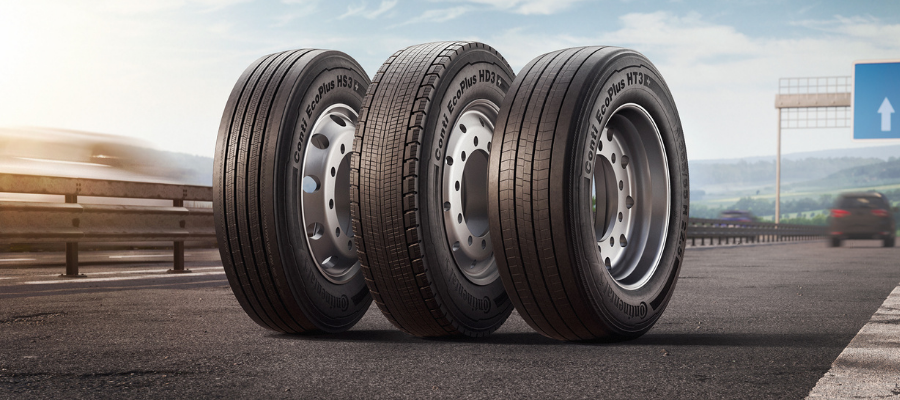🕒 Article read time: 2 minutes
Saving fuel with Continental Tyres: rolling resistance makes the difference
Sponsored content

Right now, petrol and diesel seem like luxury commodities, as drivers confronting the high prices at filling stations can testify.
Unsurprisingly, skyrocketing costs are also giving transport companies and fleet managers sleepless nights. Logistics associations are even warning of a wave of potential insolvencies. The emphasis is once again on saving fuel.
Tyres are one of the contributing factors to influence overall fuel consumption. Continental has historically considered the impact of tyres on fuel economy and, consequently, made it a key focus of its research and development work.
LOWER FUEL CONSUMPTION: HOW TO BE COST EFFICIENT AND SUSTAINABLE
Tyre pressure, vehicle configuration, load distribution, mileage, traction and tyre performance are all important criteria in determining fuel consumption and, therefore, CO2 emissions. However, by far the most important and influential factor is rolling resistance. Here, the task has always been to strike a balance between low rolling resistance on the one hand, and safety-relevant attributes such as grip and handling on the other.
TREAD COMPOUNDS ARE THE KEY
With this in mind, Continental focuses primarily on optimising tread compounds, which generate energy loss without negatively impacting grip or mileage. That may sound straightforward, but it is far from the case. Tyres are impacted by various forces during a journey, with the tread and sidewall of a tyre subject to bending, buckling and shearing. The constant deformation of a vehicle’s tyres and recovery to their original form causes energy to be converted into heat, in a process known as hysteresis. “This is one of the main causes of rolling resistance in tyres,” says Hinnerk Kaiser, Head of Product Development Bus and Truck Tyres at Continental.
“With hysteresis, energy is lost in the form of heat. Fuel has to be burned to counteract this effect and maintain the vehicle’s forward momentum.” This shows how important it is to select the right tyres for the vehicle’s operational needs.
LESS IS MORE
The relationship between lower rolling resistance and reduced fuel consumption is embodied by the ongoing development of the Conti EcoPlus and Conti EcoRegional tyre families. Our innovative rubber compound has been key to striking the right balance. These premium tyres help to reduce fleet costs and CO2 emissions, without compromising on mileage and service life. In mixed regional haulage, in particular, the EcoRegional can offer significant potential for savings, depending on the truck’s usage profile.
The interplay between correct tyre choice, tyre construction, tyre pressure and rolling resistance is critical in determining how much fuel a fleet of vehicles uses and how much it can save. Current high fuel prices, a growing demand for CO2 emission reduction and increased sustainability continue to shine the spotlight on the issue of fuel saving. Continental is offering solutions which can help overcome these challenges and support fleet managers with their decision making.
For more information on Continental’s fleet solutions please visit the link below.
*www.continental-tyres.co.uk/truck
Published On: 05/05/2022 16:00:56

Comments Section
If you are a Logistics UK member login to add comments.